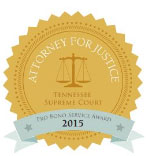On June 9, the OIG issued a Special Fraud Alert cautioning that physician compensation arrangements, such as medical directorships and other financial arrangements, violate the federal anti-kickback statute if one purpose of the compensation arrangement is to compensate the physician for past or future referrals.
The OIG has previously cautioned on the risks of physician compensation arrangements, and the June 9 Alert is in response to recent settlements with 12 individual physicians who entered in problematic medical directorship and office staff compensation arrangements.
The OIG alleged that the compensation arrangements constituted improper remuneration in violation of the anti-kickback statute for several reasons:
1. The payments took into account the volume or value of the physicians’ referrals to the entity making the payments,
2. The payments did not reflect fair market value for the services provided,
3. The physicians did not actually perform the services required by the compensation arrangements, and
4. Some of the physicians had entered into an agreement for an affiliated health care entity to pay the salaries of the physicians’ front office staff, which relieved the physicians from a financial burden that they would have otherwise incurred.
Takeaways from the Special Fraud Alert include:
1. The OIG is continuing to increase its oversight of physicians who participate in the Federal health care programs (Medicare, Medicaid, TriCare),
2. Any compensation arrangement between a physician and an entity to which the physician refers patients must comply with the anti-kickback statute’s fair market value requirements, cannot be based on the volume or value of referrals from the physician, and must meet other requirements set forth in the anti-kickback statute’s safe harbor regulations.
3. Compensation arrangements must be bona fide, meaning that the services to be provided under the arrangement must be necessary and the physician must actually perform the services.
The Fraud Alert is a reminder that physician compensation arrangements must be property structured, documented and monitored to ensure both initial and ongoing compliance with the anti-kickback statute. The OIG may come across physician compensation arrangements in a variety of ways that do not directly involve the physician, such as in the course of a hospital review or a whistleblower who reports the questionable arrangement to the OIG or other enforcement agency. At the end of the Fraud Alert, the OIG solicits whistleblower reports of improper financial arrangements.
The OIG will not hesitate to pursue individual physicians, and thus it is incumbent that physicians be knowledgeable of their obligations under the fraud and abuse laws; and be very familiar with the terms and conditions of financial arrangements with entities with which they have a referral relationship in order to mitigate risk of non-compliance. In the 12 recent settlements that are the subject of the Special Fraud Alert, the OIG found that the physicians were an integral part of the scheme to defraud the government and therefore subject to liability under the Federal Civil Monetary Penalties statute. Violations of the fraud and abuse laws can also carry criminal penalties.
The link below provides further analysis of the June 9 Special Fraud Alert.
https://oig.hhs.gov/compliance/alerts/guidance/Fraud_Alert_Physician_Compensation_06092015.pdf



 Christi is an accomplished attorney and legal executive with a proven track record of representing innovative organizations in all business life cycle stages, both as a corporate lawyer serving on the senior management team and as a private law practitioner. Christi speaks to industry groups on health care legal operations and liability management issues, providing education and tools to improve business performance. She is currently an adjunct professor at the Cumberland University Labry School of Business and Technology.
Christi is an accomplished attorney and legal executive with a proven track record of representing innovative organizations in all business life cycle stages, both as a corporate lawyer serving on the senior management team and as a private law practitioner. Christi speaks to industry groups on health care legal operations and liability management issues, providing education and tools to improve business performance. She is currently an adjunct professor at the Cumberland University Labry School of Business and Technology.